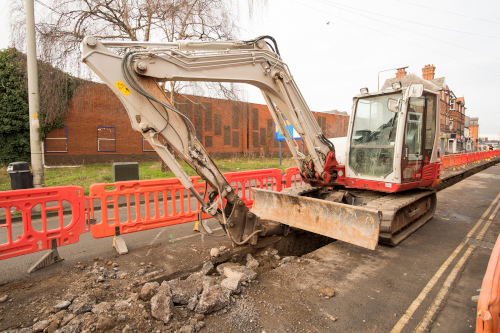Flexi-permit street work trials could begin in a series of authorities across the country in the next couple of weeks, Highways can reveal.
A Department for Science, Innovation and Technology (DSIT) spokesperson confirmed that the flexi-permits 'would allow operators to carry out work across multiple streets intransport a pre-defined area and within a specified time period without the added complication of parking permits'.
'Under the current permit system for street works, statutory undertakers such as telecoms operators need a permit for each individual street they work in, meaning work is often unnecessarily delayed, slowing the roll-out of gigabit broadband across the UK,' the spokesperson added.
The DSIT said several highway authorities are in discussions with potential telecoms operators about taking part in trials, with work in the first areas set to commence in the coming weeks.
The department said the trial areas were soon to be determined. However, Highways sources suggest that certain authorities are confident of the go-ahead.
The utilities industry has championed the flexi model for years, arguing that it would greatly aid their works delivery. However, previous attempts to establish the system had foundered.
Clive Bairsto, chief executive officer and chairman of Street Works UK, told Highways in 2023: ‘We are exploring another approach: a non-statutory approach called a “project permit” or a “project collaborative permit”. A non-statutory change [through secondary legislation changes to the New Roads and Street Works Act 1991] can be done much more quickly.
'A flexi-permit is probably best suited to the type of infrastructure rollout for a telecommunications-style organisation and the project and collaborative permits would probably be more suited to the electrical and water industries as we stand. We are working this through at the moment.’
DSIT and Department for Transport officials have commissioned an independent third party, RSM, to design, oversee and evaluate a flexi-permit trial programme in a deal worth just over £280,000.
The company will assess whether the concept will accelerate broadband rollout in practice.






